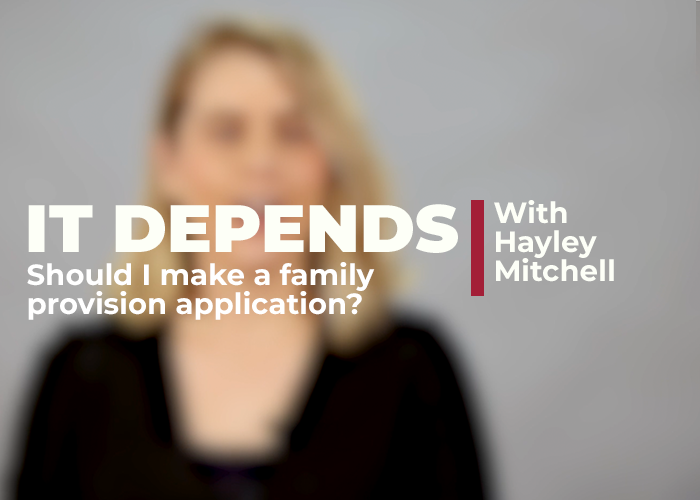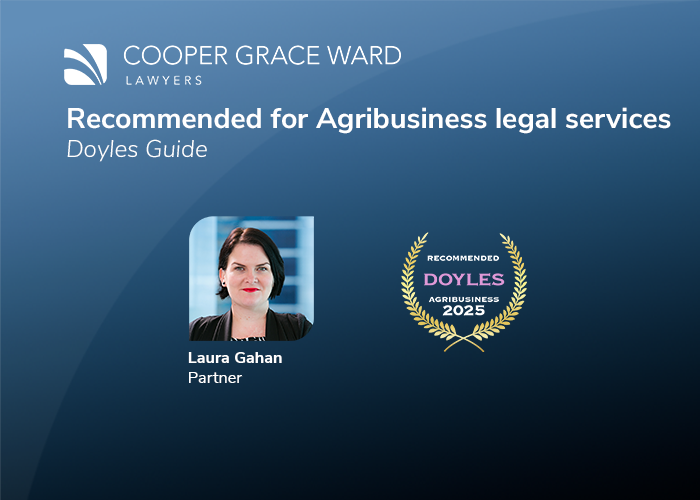In this edition of ‘It depends’, partner Hayley Mitchell talks about whether or not you should file a family provision application.
VIDEO TRANSCRIPT
Hi, and welcome to It depends.
Today, I’m going to be talking about whether or not you should file a family provision application.
What is a family provision application.
A family provision application is a claim on a deceased estate in circumstances where you feel you have been left without adequate provision.
Either you haven’t received enough under the will or you’ve been left out completely or under the intestacy rules, the amount you receive isn’t enough to provide for your needs.
Who is eligible to make this type of claim?
In Queensland, only spouses, children or people who were financially dependent and under the age of 18 are eligible to make a family provision application.
If the deceased lived in another state or they owned assets in another state, then the relevant rules of that state legislation will apply, which might broaden the eligibility criteria.
So, you would need to seek or check the rules in those states before making this type of claim.
Should I make a family provision application?
It depends and it will depend on a variety of factors.
As the applicant, you need to show that you haven’t been adequately provided for. To do this, you need to provide evidence of what your current financial circumstances are, what your needs are in terms of your accommodation costs, what your health needs are, what’s your ability to provide for yourself and your dependents so, if you have children or elderly relatives living with you, what are your expenses to provide for yourself and everyone else within your care?
Your circumstances then need to be carefully considered against those of the other beneficiaries in the estate or anyone else making a claim on the estate.
You also need to consider your needs, your chances of success, the size of the estate against the legal costs that you’re going to incur to make this sort of claim and then the legal costs that are going to be incurred by the estate to either defend or negotiate with you and your claim.
Are there any time limits?
Yes, in Queensland, you must give notice of your intended claim to the executor within six months of the date of death.
You then must file your claim with the court within nine months of the date of death.
Again, if the deceased lived in another state or held assets in another state, then different timeframes will apply there and you will need to check the relevant rules in those states.
It’s important that you seek advice about this sort of claim before you take any action in filing with the court.
Again, because there can be serious cost consequences for you.
If you’re looking at making this type of claim on an estate or want some further information, please contact a member of our private clients team.




